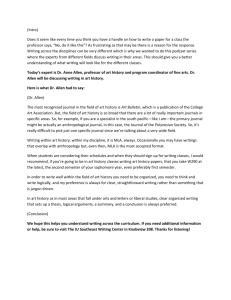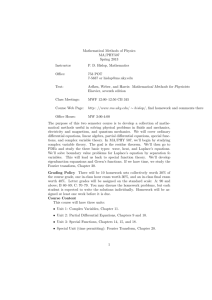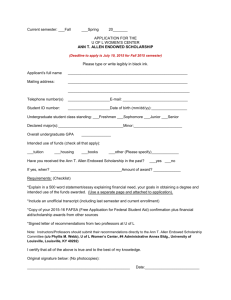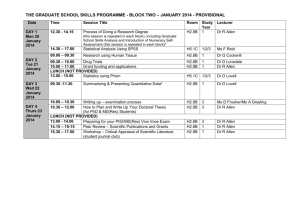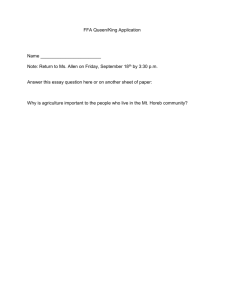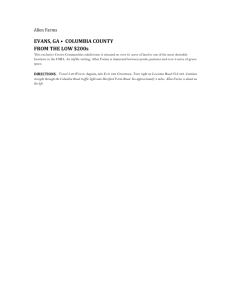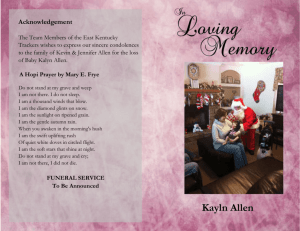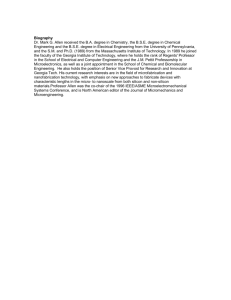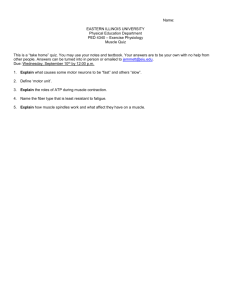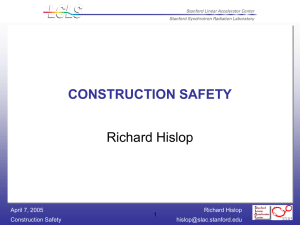A Major Gift Creates Endowed Chair in Animal Sciences
advertisement
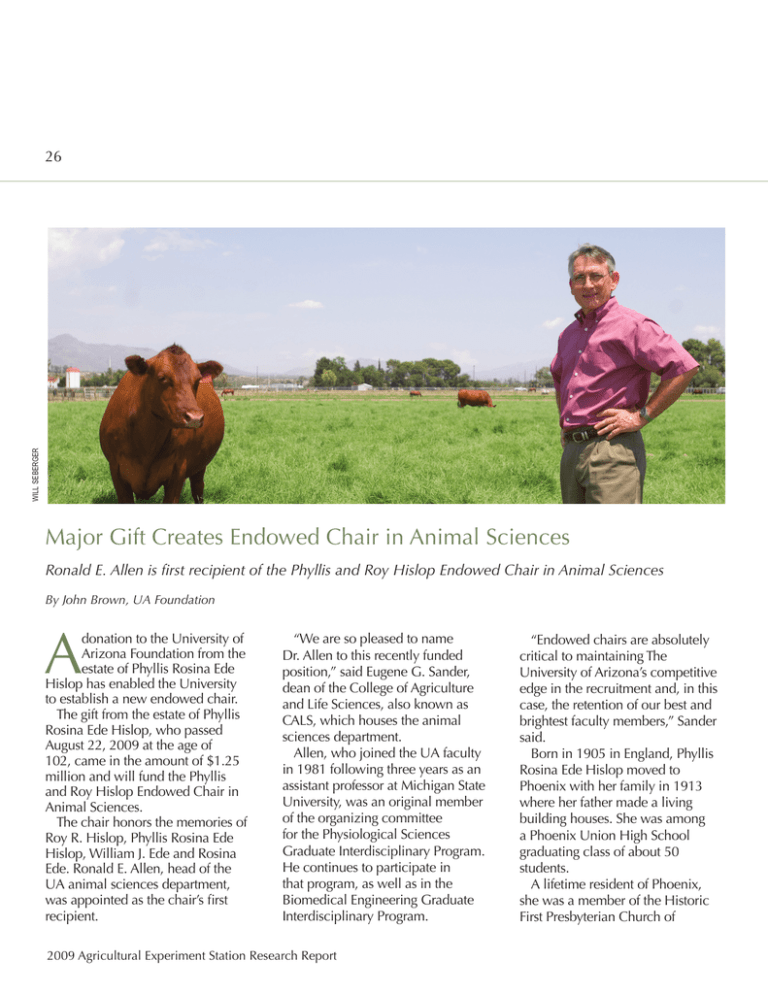
will seberger 26 Major Gift Creates Endowed Chair in Animal Sciences Ronald E. Allen is first recipient of the Phyllis and Roy Hislop Endowed Chair in Animal Sciences By John Brown, UA Foundation A donation to the University of Arizona Foundation from the estate of Phyllis Rosina Ede Hislop has enabled the University to establish a new endowed chair. The gift from the estate of Phyllis Rosina Ede Hislop, who passed August 22, 2009 at the age of 102, came in the amount of $1.25 million and will fund the Phyllis and Roy Hislop Endowed Chair in Animal Sciences. The chair honors the memories of Roy R. Hislop, Phyllis Rosina Ede Hislop, William J. Ede and Rosina Ede. Ronald E. Allen, head of the UA animal sciences department, was appointed as the chair’s first recipient. “We are so pleased to name Dr. Allen to this recently funded position,” said Eugene G. Sander, dean of the College of Agriculture and Life Sciences, also known as CALS, which houses the animal sciences department. Allen, who joined the UA faculty in 1981 following three years as an assistant professor at Michigan State University, was an original member of the organizing committee for the Physiological Sciences Graduate Interdisciplinary Program. He continues to participate in that program, as well as in the Biomedical Engineering Graduate Interdisciplinary Program. 2009 Agricultural Experiment Station Research Report “Endowed chairs are absolutely critical to maintaining The University of Arizona’s competitive edge in the recruitment and, in this case, the retention of our best and brightest faculty members,” Sander said. Born in 1905 in England, Phyllis Rosina Ede Hislop moved to Phoenix with her family in 1913 where her father made a living building houses. She was among a Phoenix Union High School graduating class of about 50 students. A lifetime resident of Phoenix, she was a member of the Historic First Presbyterian Church of 27 Phoenix for more than 90 years and was a past president of the Soroptimist International of Phoenix. There, she worked at First National Bank of Arizona, including serving time as a Trustee, from 1924 until retiring in 1970. In 1978, Phyllis Rosina Ede Hislop married Roy R. Hislop, a longtime Phoenix cattleman. Roy cross-bred breeds to produce beef with minimum fat so the cattle would be a useful food source, not just heavy show animals. He died in 1986. Sander said the college accepts the gift “with tremendous gratitude,” noting that the contribution will “make possible tremendous research that sits at the intersection of cutting-edge 21st century research and the University’s land-grant commitment to serving the people of Arizona.” The annual payout from the endowed chair will provide unrestricted funding for Allen to pursue and further develop his research interests. As a faculty member in the departments of animal sciences and also nutrition and food science, Allen developed a muscle biology research program that bridged agricultural and biomedical sciences. The focus of his research for nearly 30 years has been on the regulation of skeletal muscle satellite cells, the predominant stem cell in adult muscle. “These cells are required for normal muscle growth in animals and man, and for regeneration of diseased and damaged muscle,” Allen said. His early work demonstrated the ability of small protein growth factors to regulate the division of satellite cells and their subsequent formation of new muscle fibers. Other lab work has described extracellular signaling events that activate dormant satellite cells in response to muscle activity and damage. “Recently, my interests have turned to understanding the targeted migration of activated satellite cells to sites of muscle fiber injury and the ability of these cells to coordinate the development of new blood vessels in regions of severe damage,” Allen said. His research has promising implications in areas ranging from improved medical treatments for muscle injuries to better understanding of the human aging process. Also, Allen’s work in animal growth is helping the cattle industry develop new methods to increase food production at lower costs while enhancing animal health. Contact Ronald E. Allen (520) 621-7626 rallen@ag.arizona.edu The University of Arizona – College of Agriculture and Life Sciences
